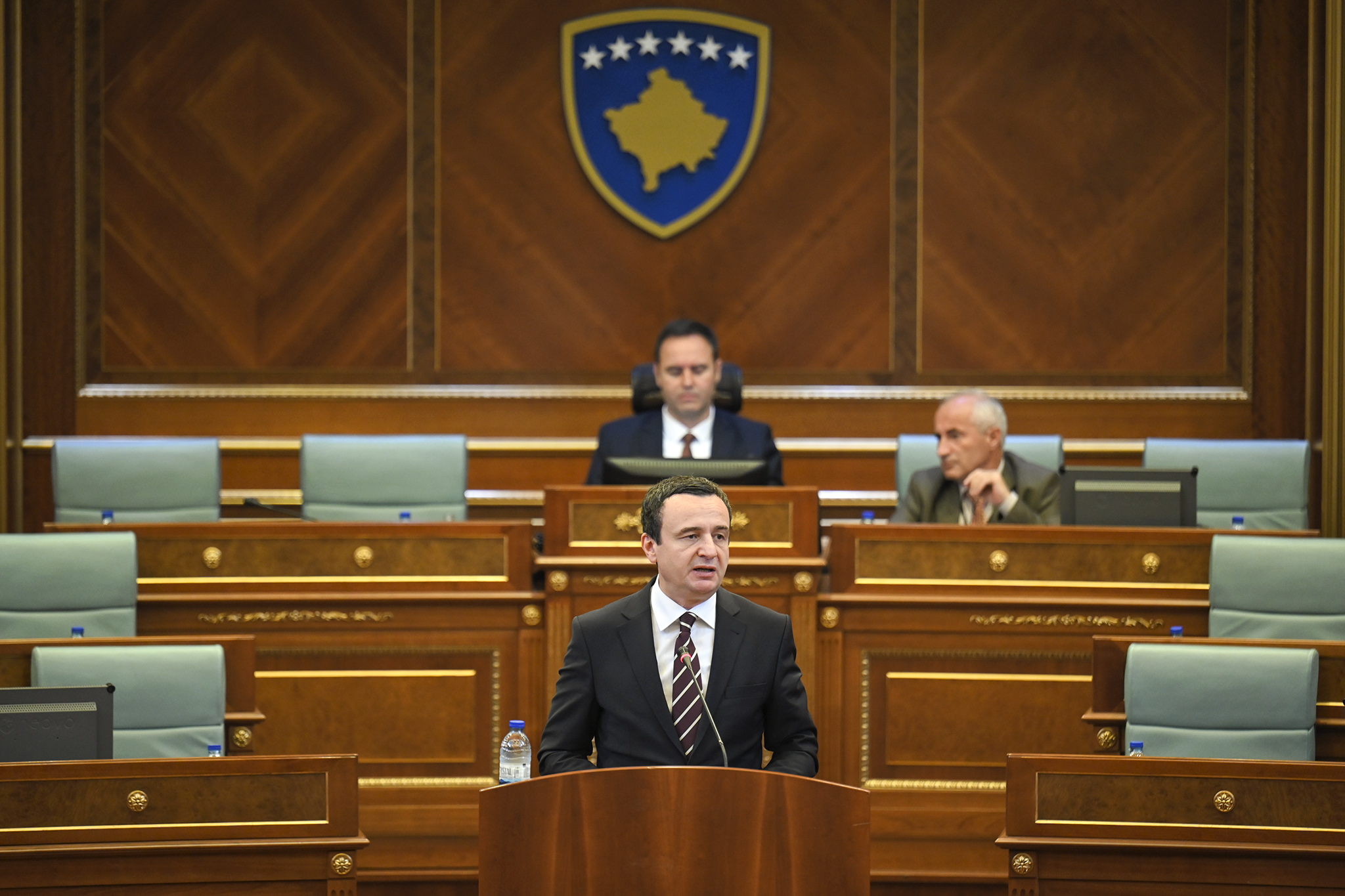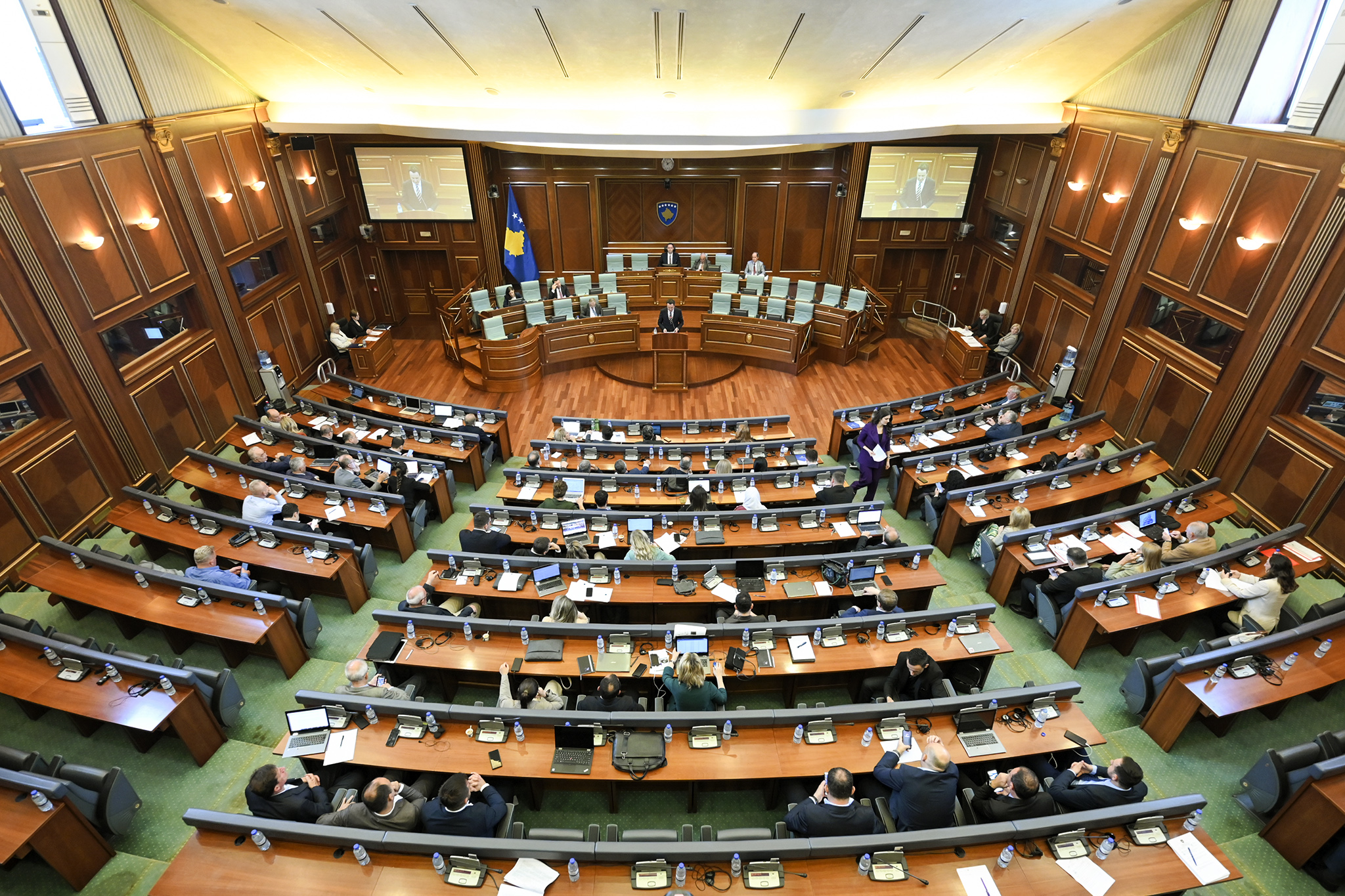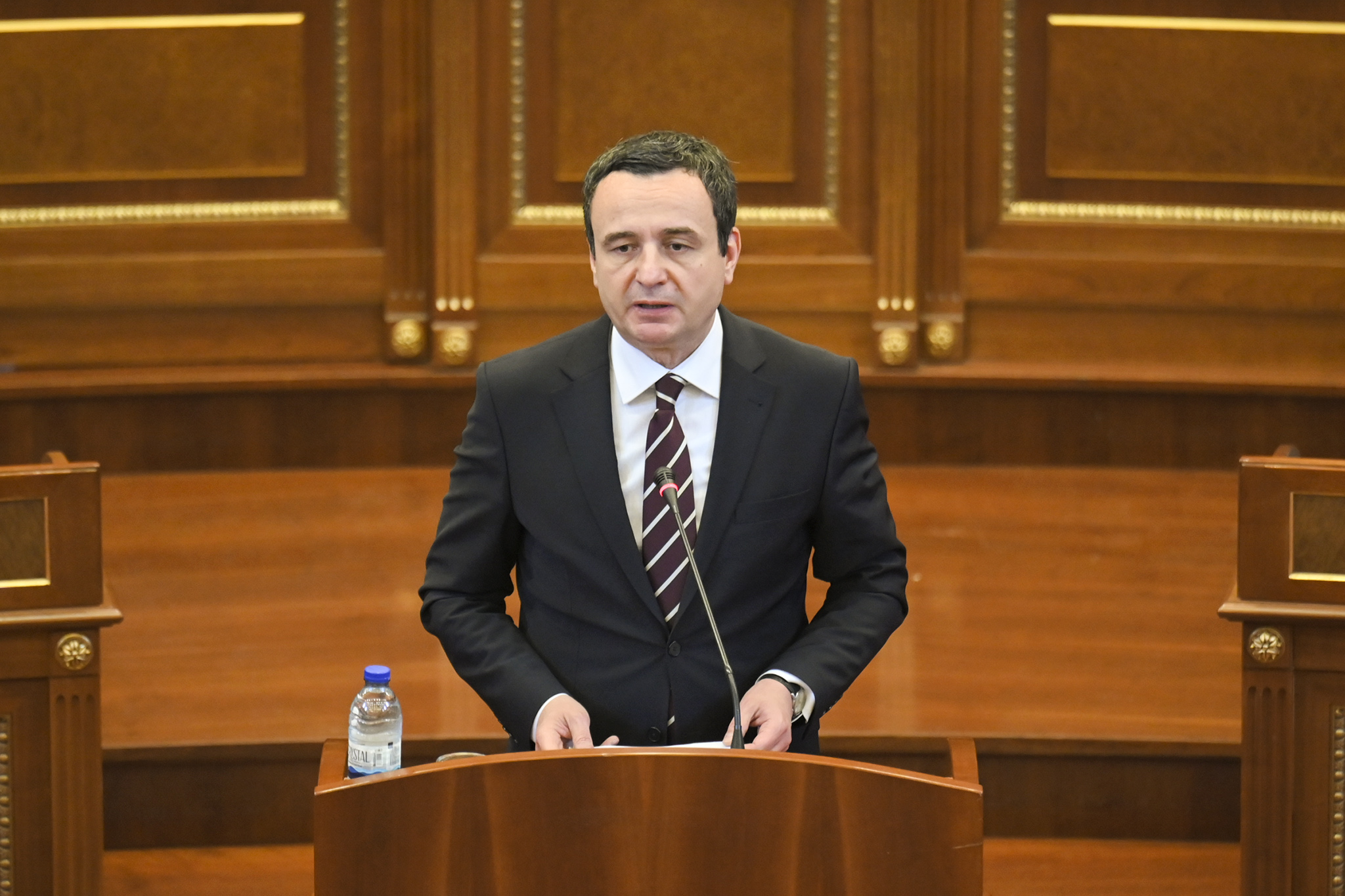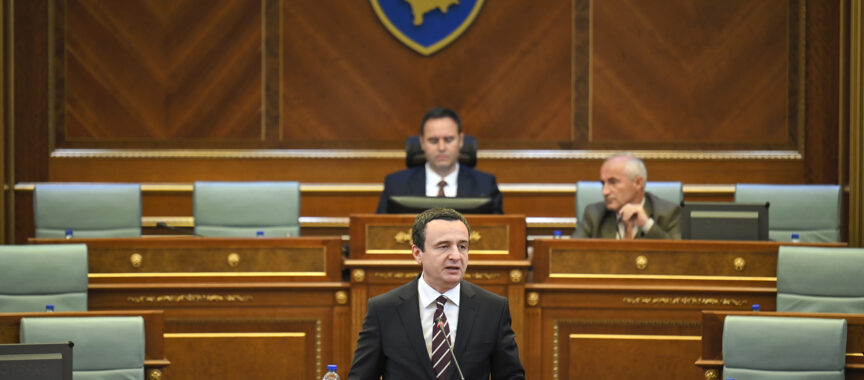Honorable Speaker of the Assembly Mr. Glauk Konjufca,
Dear Members of the Assembly of the Republic, Deputy Prime Minister, Ministers of Government Cabinets,
Dear citizens,
As the Prime Minister of the country, but also as the Chairman of the largest political party in the country, of course I express my satisfaction and thanks regarding the work done to successfully complete this electoral reform. First of all, I want to thank the political entities participating in the ad-hoc Commission Working Group for their commitment, work and compliance regarding the changes and additions made to the Law on General Elections in Kosovo. Also, I thank the international friends for their professional contribution with continuous recommendations, after all election cycles in Kosovo, now over a decade.
In this regard, I would like to highlight in particular the EU Monitoring Mission and the United Kingdom Monitoring Mission, for the numerous professional recommendations, which have been accepted and fully integrated in the draft offered for voting today.
I thank the OSCE Mission in Kosovo for the readiness and professional and infrastructural support for the realization of this reform. Also, I want to thank the civil society for their critical stance and continuous commitment to the implementation of the electoral reform and their recommendations.
At the very end, no less, I want to thank the CEC for the commitment and professional work, for the extraordinary help with analyzes and professional studies and concrete recommendations for the realization of this electoral reform.
Efforts for electoral reform began immediately after the parliamentary elections of 2010, which were characterized by numerous irregularities and manipulations that were described by various international monitoring missions as “industrial vote theft”. This attempt at electoral reform did not succeed due to the lack of political will at that time and other political developments.
As we have said before, the problem with the electoral processes had less to do with the electoral system than with the election administration process itself. After each election process, there were reports of the European Union Election Observation Mission, but also of local organizations, which revealed the problems and shortcomings that characterized the elections, where recommendations for their improvement were also given. The report of the European Union Mission for the Observation of Local Elections in Kosovo, published in February 2022, addressed 23 recommendations for improving electoral processes in the future, some of which included the necessity of legal changes.
Similarly, the European Commission in the 2022 Progress Report for Kosovo, in the field of democracy, has listed the issues related to the electoral processes and their non-addressing for years. The participation of the diaspora in the electoral processes and their difficulties in realizing this right are the next reason for the necessity of these legal changes, which already enables the realization of their right to vote.
Among the most important issues that are regulated by this draft law are: the registration of voters abroad, the method of voting abroad, the right to vote, the counting of votes/ballots for candidates of political entities, and additional financial support for parties that create space for a greater number of female MPs than the established quota.
– The new draft law foresees online registration through a platform that the CEC will create so that voters from the diaspora do not need to send multiple documents either by email or by post. The online registration platform aims to reduce technical and procedural barriers, but also to reduce costs and increase efficiency.
– With the new draft law, emigrants will have three voting methods. The first, voting physically at embassies and consulates, the second, voting by sending them by internal mail to the address of the embassy, and the third remains the old way by sending them to the address of the CEC.
– With the new law, the right to vote belongs only to those who are registered in the civil registry, respectively those who have been provided with documents of the Republic of Kosovo.
– This draft law preserves the speed of counting votes for political parties as well as the announcement of results a few hours after the polls close. But the bill also addresses the root cause of recounts by moving the counting of votes for candidates to municipal counting centers, through a transparent process that allows for faster certification of election results.
– With the new draft law, the CEC allocates additional public funds in the amount of 1% of the total amount allocated to the political entity for each term won by women above the 30% quota at the time of certification.
The new law on elections will put an end to the long injustice done to all expatriates, citizens of Kosovo. Their strong connection with their country, their undeniable contribution at any time and in any circumstance made even more necessary the need for them to be an active part of decision-making in their homeland.
Over the years they were challenged and harassed with complicated and bureaucratic registration procedures, spent and struggled to meet postal deadlines, sacrificed their days off and their obligations to be physically in Kosovo to vote, and they were often disappointed when, due to technical reasons and negligence, they could not find the names in the voter lists.
We are very happy that now all expats who enjoy their right to vote will be offered the opportunity to exercise it by choosing the most suitable opportunities for them, either by voting in the offices of embassies and consulates, or by voting through the mail within the relevant state or towards Kosovo.
We hope that with the voting of this Law today we will get revenge for all the emigrants who, despite the difficulties, did not give up to express their political will and patiently wait for their country to make them even prouder when they you are allowed to vote in the states where you live and work.
Thank you all!
Last modified: June 9, 2023



